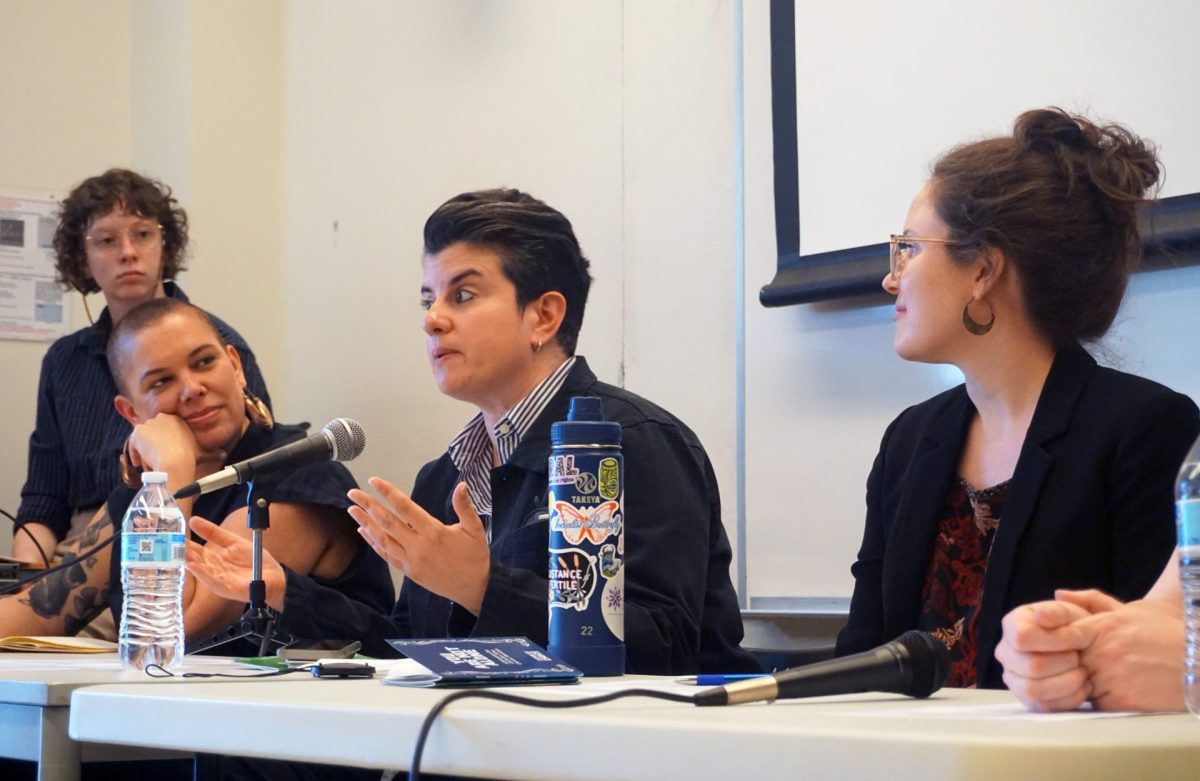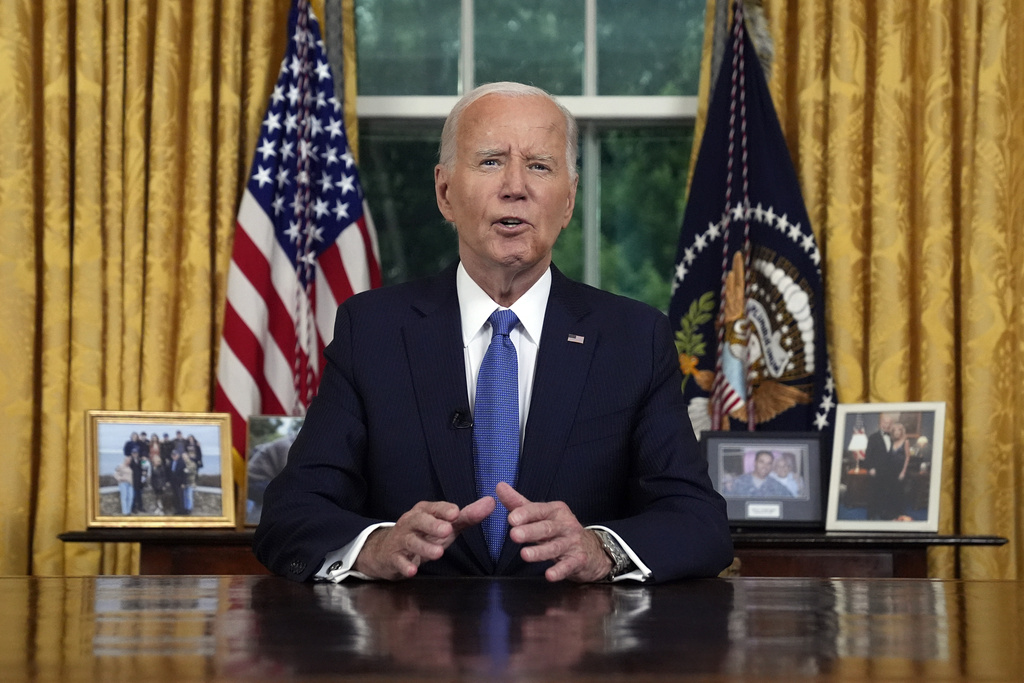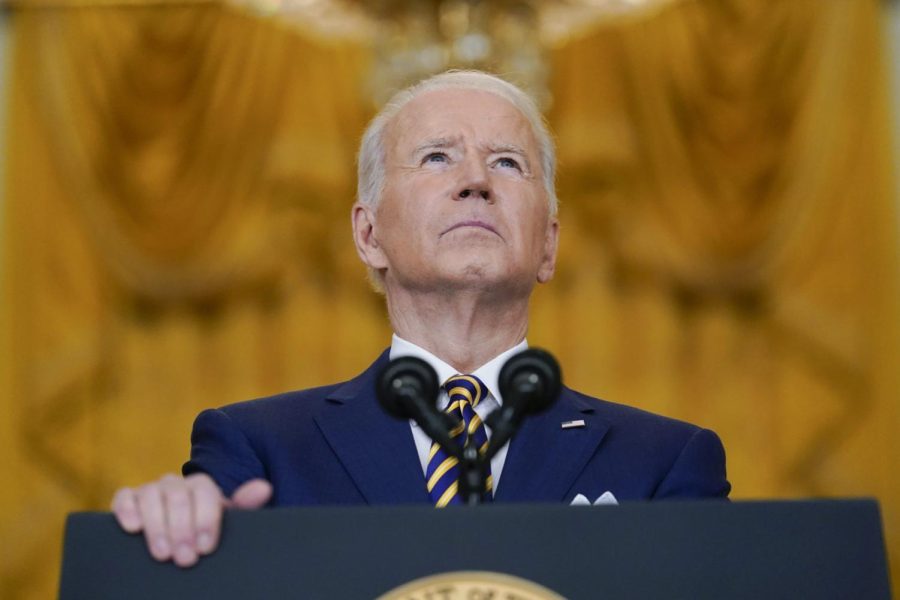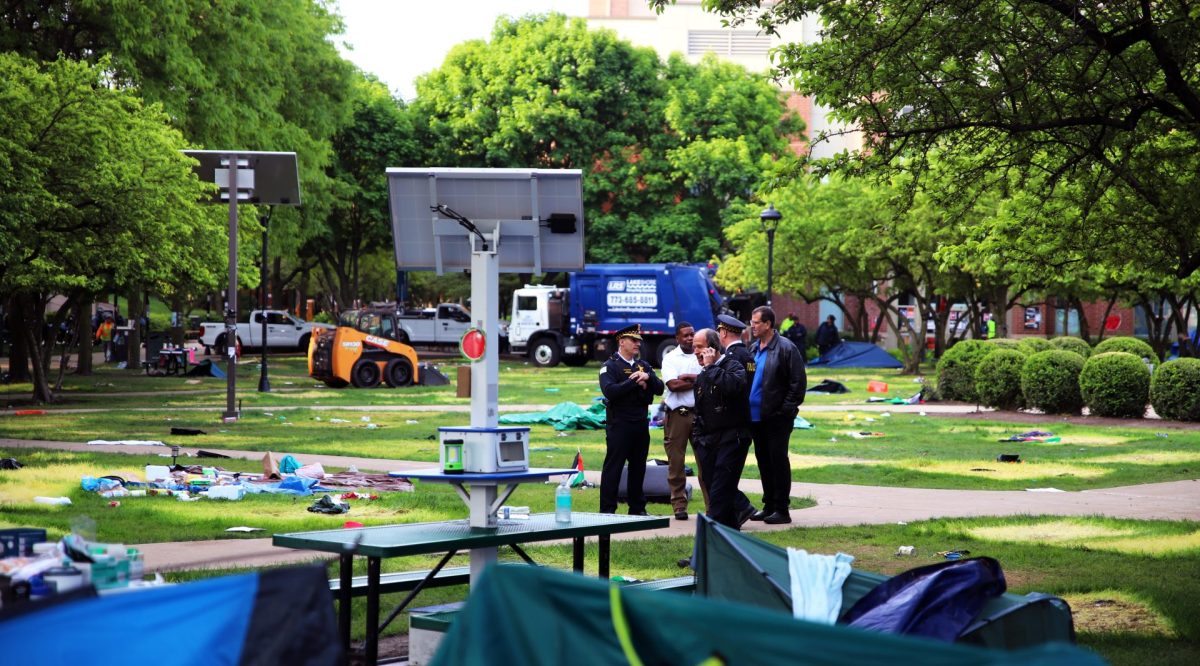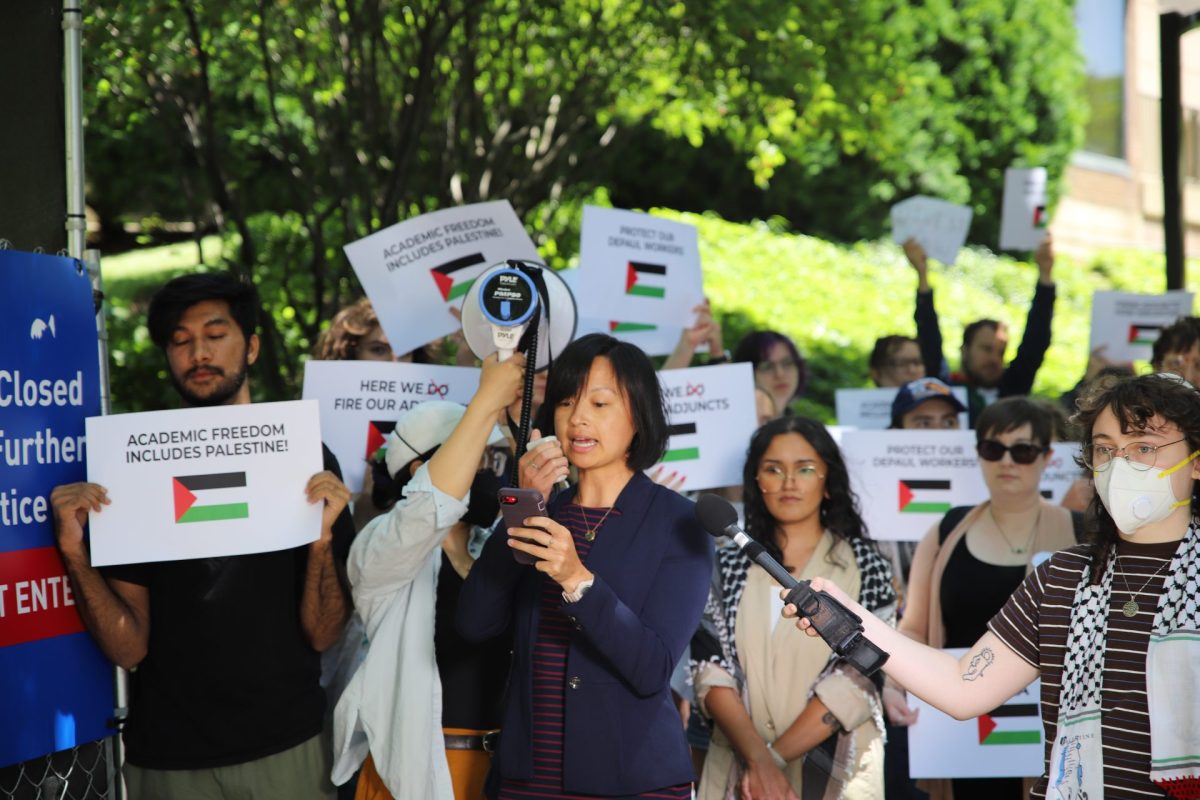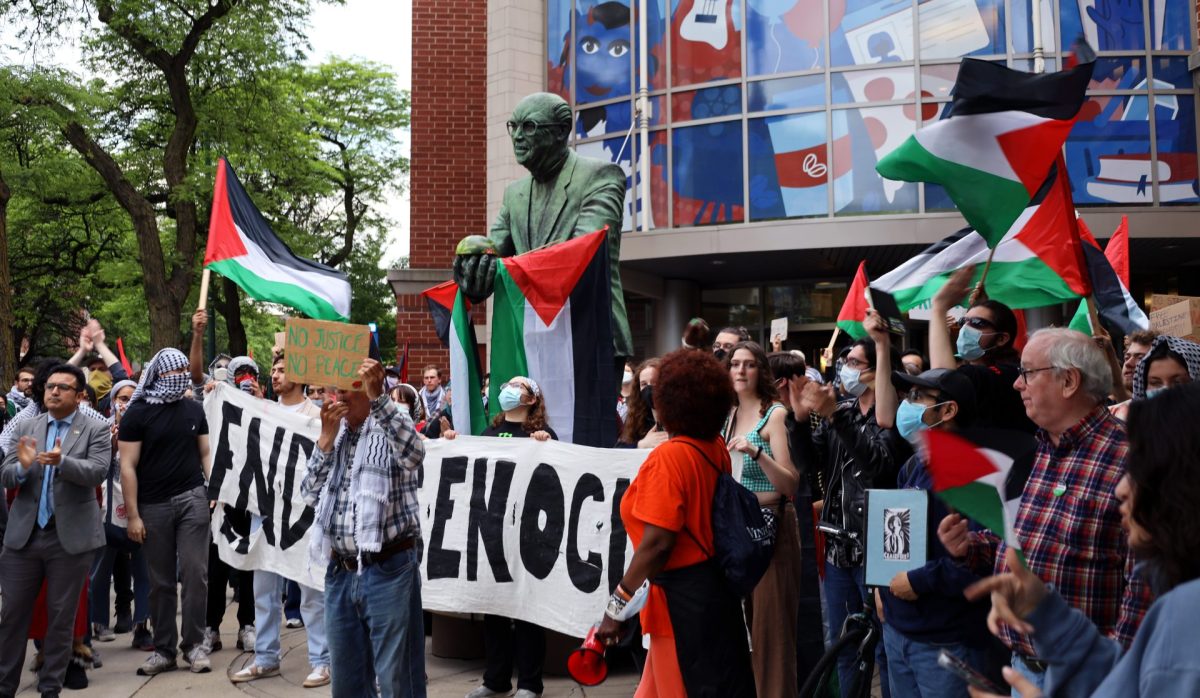“My Catholic identity is my advocacy. They are one in the same,” said Jamie Manson, president of the national organization Catholics for Choice.
Out of love for her faith, not in spite of it, Manson said she has been “butting-up” against the Catholic Church since she was 14 and felt called to the priesthood.
“Telling everyone that clearly God wanted me to be a priest helped me understand the profound misogyny of the Roman Catholic Church and that my body makes me illegitimate and unworthy,” she said.
Manson said mainstream Catholicism’s prejudice against women explains the church’s opposition to gay marriage, contraception and abortion.
“It really is the understanding of women and what we can and cannot do,” Manson said.
A panel of experts convened in DePaul’s Theatre School Thursday evening to discuss the unlikely compatibility of supporting abortion rights and a person of faith.
DePaul’s chapter of Planned Parenthood Generation Action (PPGA) organized the event.
Maya Roman, treasurer of PPGA, said the panel discussion acts as a kickoff event for PPGA’s campaign opposing DePaul’s contraceptive ban.
“One of the most important aspects of this is bringing people in who have affiliations with the Catholic religion, who are also pro-contraception and pro-choice, to discuss that the contraception ban — although the church implements them — doesn’t necessarily mean that access to contraception is inherently anti-Catholic,” Roman told The DePaulia.
Surveys have found that being Catholic and supportive of abortion rights is more common than many people think. Catholic Church doctrine states that human life begins at conception and that all human life has inherent dignity. Using these principles, the Church calls all procured abortion “a moral evil.”
However, 63% of U.S. Catholics support legalized abortion in all or most cases, according to a 2022 poll from the United States Conference of Catholic Bishops.
Only 8% of Catholics support the Church’s position that there are no circumstances in which abortion is admissible.
Manson called this “a barbaric teaching of forced births.”
She said opposing abortion exposes irony in the Church’s call to prioritize the most vulnerable.
“One of the most beautiful things about the Catholic tradition is our social justice,” Manson said. “And yet, abortion and contraception bans and restrictions cause disproportionate harm to those who are already disproportionately suffering.”
She said the poor around the world and people in the Global South are especially affected by the Church’s position against abortion and contraception.
“I got very radicalized when I saw the ban on contraceptives, particularly in Sub Saharan Africa,” Manson said.
Even amid the AIDS epidemic, the church refused to abide the use of condoms.
DePaul’s policy banning “inappropriate health and medical devices” has religious and health consequences, according to panelist Morgan Beatty, a family medicine physician who practices on Chicago’s West side.
She said contraceptive bans both result from and advance stigma about sex.
“The same things that lead to the stigma around abortion are the same things that lead to the stigma around all sex and being a sexual being,” Beatty said.
She said promoting restrictive healthcare that excludes resources for sex and reproduction contributes to the shame people feel about sex.
“Catholic or not, people need contraception, people are gonna have sex,” Beatty said.
Panelist Megan Jeyifo, executive director of the Chicago Abortion Fund, said she is proud of her Catholic education and being raised a “Catholic Socialist.”
But she lamented how Catholics further stigmatize sex by not talking about it.
She left school in ninth grade, meaning Catholic elementary school was the end of her formal education.
“Sex-ed was just not a part of that,” Jeyifo said.
When she became pregnant at 16 years old, Jeyifo said she did not know for many weeks because she did not know what her body would be going through.
“The less we talk about all of these things, the more we have the outcomes that the Catholic Church says that they don’t want,” she said.
Manson pointed to “the procreative norm” promoted by the Catholic Church, meaning that all sex has to have the possibility of creating life, according to church doctrine.
“If we allow you to have contraception, that means we think it’s okay for you to have sex, and you’re having sex is opposed to our Catholic theology of procreative norm,” Manson said.
However, she also called attention to a teaching in the Catechism, or official dogma of the Catholic Church, called “the primacy of individual conscience.”
“It says that in all that we say, and in all that we do, we must follow faithfully what we know to be just and right,” Manson said.
DePaul student and panel attendee Sky Mest believes abortion and contraception are just and right, although she has struggled to align these beliefs with Christianity.
She said she no longer identifies as Christian because of it.
“Tonight almost makes me think I can maybe go back one day because there are still Catholics here who are still very fundamentally Catholic,” Mest said.
Manson’s organization, Catholics for Choice, demonstrates the compatibility of Catholic social justice teaching with abortion rights ideology.
Though she derives meaning from her faith, Manson chooses to fight Catholic teaching because she said, “the church is a menace to bodies, especially vulnerable bodies.”
The disjunction between the social justice-oriented teachings of the faith and the formal doctrine of the church is the crux of Manson’s fight.
Roman, the DePaul student and panel organizer, said PPGA is in talks with university administration about overturning the contraceptive ban.
“As a Catholic looking to advance the social justice mission of institutions like DePaul, Manson is proud of PPGA’s fight.”
“Not in the name of my faith will the church take away basic human rights,” Manson said. “I cannot live with the fact that a tradition that I do genuinely love is causing so much harm.”
Related Stories:


